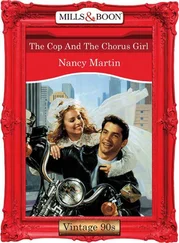“But it’s for a good cause,” Monk said.
“Even if he agreed with you about that, I doubt that the Nobel Committee would accept a nomination from a murderer.”
“Then let’s create a peace organization,” Monk said. “How hard could that be?”
“I’ll look into it,” Danielle said, writing a note to herself. I bet it was something like, Monk is crazy.
“I believe in peace.” Monk made a peace sign with his fingers. “You can’t have peace without cleanliness. The Diaper Genie could unite the world.”
“Did you have any luck with the home-invasion murder case?” Danielle asked.
“It’s not a home invasion,” Monk said. “And it’s not a murder.”
She looked baffled. “Then what is it?”
“Suicide,” Monk said.
He motioned us over to the table and gestured to the photographs.
“Look at this. Lou Wickersham was stabbed in the heart while sitting in his easy chair. That doesn’t make any sense.”
“Why not?” she asked.
“If he’d walked in on robbers and they attacked him, then his body would be on the floor, not in the chair. And if they came at him from the front, why doesn’t he have any defensive wounds?”
“There’s the cut on his hand,” I said.
“It’s on the back of his hand,” Monk said. “If he grabbed for the knife, the wound would most likely be across his palm. Besides, the cut is superficial.”
“You’re saying that Wickersham stabbed himself in the chest?” Danielle said.
“Yes,” Monk said. “He sat down in what is probably his favorite chair in his favorite room and plunged the knife into his heart.”
“Then why aren’t his fingerprints on the knife?” she asked.
“Because he held it with the handkerchief that’s on the floor,” Monk said. “The police assumed the killers used the handkerchief to grip the knife and that the spot of blood came from the chest wound. It didn’t. The blood came from the cut on his hand.”
“How did he get the cut?” I asked.
“When he broke the glass on the French doors to his study,” Monk said. “Here’s what happened. He ransacked the house to hide the fact that he’d sold his wife’s jewelry and everything else of value to pay off the loan sharks while she was away. But it wasn’t enough and he knew it. All he bought was some time. The best he could hope for was to secure his wife a comfortable life. So he staged a home invasion and made his suicide look like murder so that his wife would get his life insurance money.”
“He sacrificed himself for her,” I said.
Monk nodded. “And it was all for nothing. She won’t see a penny of the money.”
“Not necessarily,” Danielle said.
“The insurance company won’t pay her off for a suicide,” Monk said.
“The only way they’ll know it wasn’t suicide is if she decides to tell them,” Danielle said.
“We’ll tell them,” Monk said.
“We can’t. We were hired by the widow and are bound by our contract with her to maintain her privacy,” she said. “Nick will give her our report and what happens after that will be up to her.”
“If she doesn’t inform the police, and cashes the insurance company’s check, then we will be accessories to a crime,” Monk said.
“Not necessarily, and only if they discover the truth, if that’s what it is,” she said. “You’re the only one who thinks it wasn’t murder. With all due respect, what if you’re wrong?”
“Mr. Monk is never wrong about murder,” I said.
“That’s for our client to decide,” she said. “As Nick always says, we provide information and our clients decide what to do with it.”
“I can’t accept that,” Monk said.
“Then maybe Intertect isn’t the right place for you,” Danielle said.
I suddenly had a horrifying vision of my Lexus, my corporate credit card, my comprehensive health coverage, and my big, fat salary evaporating after just one day.
“Let’s not overreact,” I said sternly to Danielle, then turned to Monk. “Or do anything rash. I’m sure we can smooth this out with Mr. Slade in a way that everyone can live with.”
The phone rang. I answered it. It was Nick Slade, as if on cue. But before I could bring up our ethical dilemma, he spoke up.
“Another judge has been gunned down and we’ve been hired to investigate. The client specifically asked for Monk.”
“Who’s the client?” I asked.
“Salvatore Lucarelli,” he said.
“The mobster?”
“That’s yet to be proven in a court of law,” he said. “And the judge who was supposed to hear that case is the guy who was just killed.”
“Wait a minute,” I said. “I thought Judge Stanton, the judge who was killed in Golden Gate Park, was supposed to preside over that case.”
“He was,” Slade said. “Judge Carnegie was next in line, which makes Lucarelli the top suspect, which is why he wants Monk to prove that he’s innocent.”
“Mr. Monk will never work for Salvatore Lucarelli,” I said, glancing at my boss, whose ears seemed to perk up at the mention of the mobster’s name.
“You don’t know your boss as well as you think you do,” Slade said. “Monk has worked for Lucarelli before; that’s why he’s asking for him again now.”
I glanced again at Monk and, from the expression on his face, I knew that what Slade had said was true.
Mr. Monk and the Godfather
I couldn’t believe that Monk had ever worked for the mob. But he had. He gave me all the details as I drove him down to the county jail in our new Lexus.
It had happened shortly before his previous assistant, Sharona Fleming, left him and I was hired. Someone walked into a barbershop that was a front for Lucarelli’s gambling and protection racket and killed everybody in the place.
Lucarelli and his men wanted revenge but he didn’t want to spark a mob war, so he snatched Monk off the street and pressed him into service to find out who was responsible for the massacre.
Monk took the job because he was terrified not to, and because the feds, who were staking out Lucarelli, saw this as a perfect opportunity to get a man on the inside.
The feds made Monk wear a tie with a listening device woven into it and sent him back into the heart of the San Francisco mob.
Monk caught the killer and discovered that the massacre had nothing to do with Lucarelli’s money-laundering operation, but that’s a long story that I’ll have to tell you about another time.
Monk averted a mob war but the feds were mad at him. It wasn’t because he failed to get any evidence against the mobster. What pissed them off was that Monk washed and ironed his wired tie, ruining it. If toilet seats on aircraft carriers cost four figures, just imagine what a transmitting tie must go for.
As we were nearing the jail on Seventh Street, I quickly filled Monk in on what Slade had told me. Judge Carnegie was gunned down while taking his dog on his daily morning walk. With Judge Stanton dead, Judge Carnegie was next up in the rotation to preside over Lucarelli’s trial, which made the mobster the prime suspect in both killings. Now Lucarelli’s trial was indefinitely delayed and the next judge in line was under police protection.
We parked the car and entered the county jail, a striking building with undulating curves of frosted glass and an enormous sheriff’s badge mounted on the exterior. It looked more like a shopping mall than a jail, but once we were inside, any pretense of being something else was dropped. It looked just like you’d expect a jail to look.
We went through the various security gates, a wearisome ritual that always reminded me of that long corridor of sliding, swinging, and dropping doors that Maxwell Smart walks down at the beginning of each episode of Get Smart. I think they did it in the movie, too.
Читать дальше
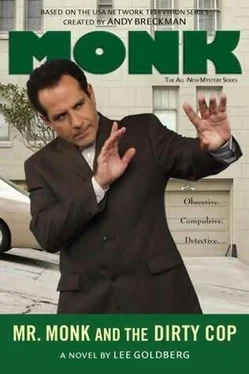


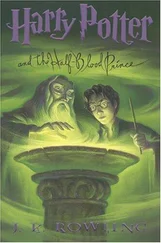
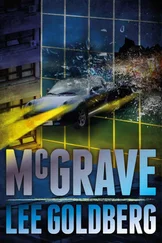
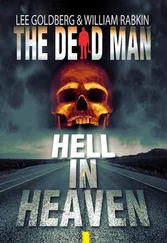

![О Генри - Фараон и хорал [The Cop and the Anthem]](/books/415669/o-genri-faraon-i-horal-the-cop-and-the-anthem-thumb.webp)




